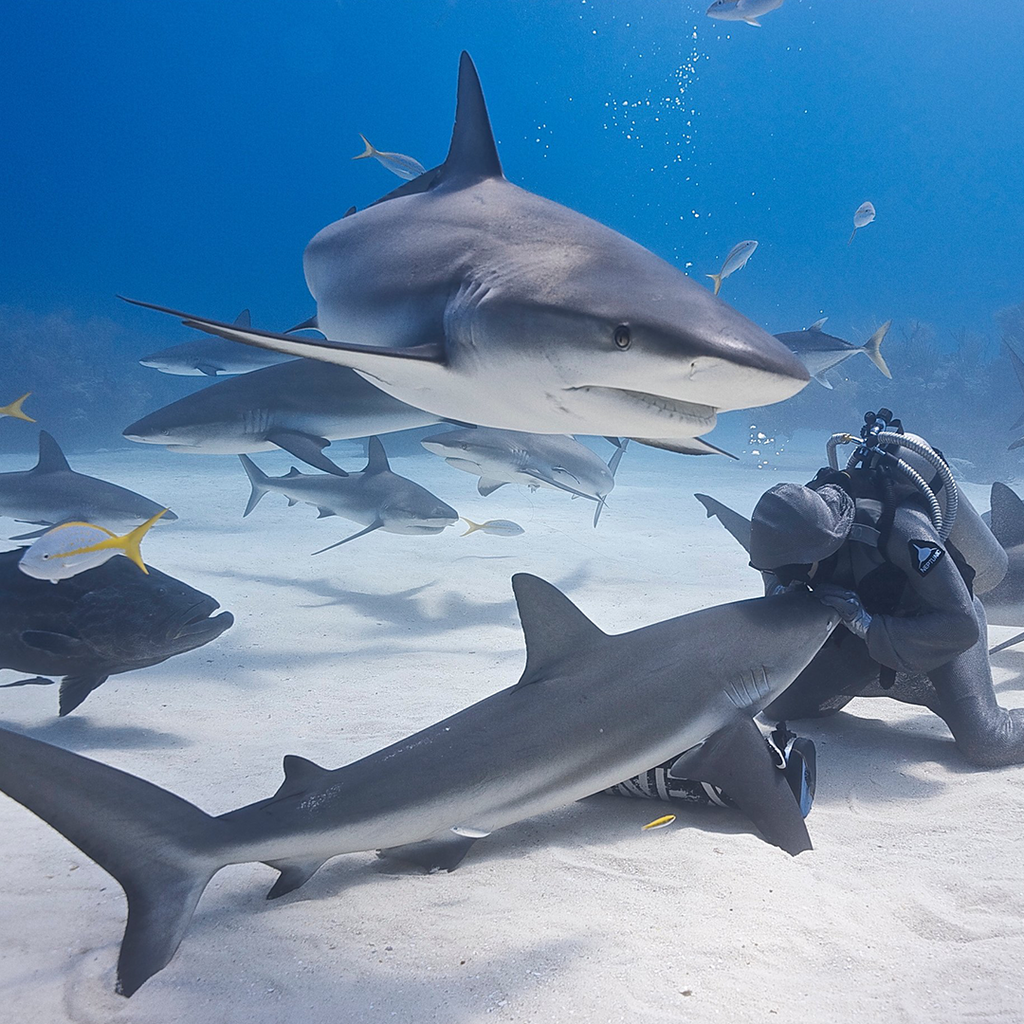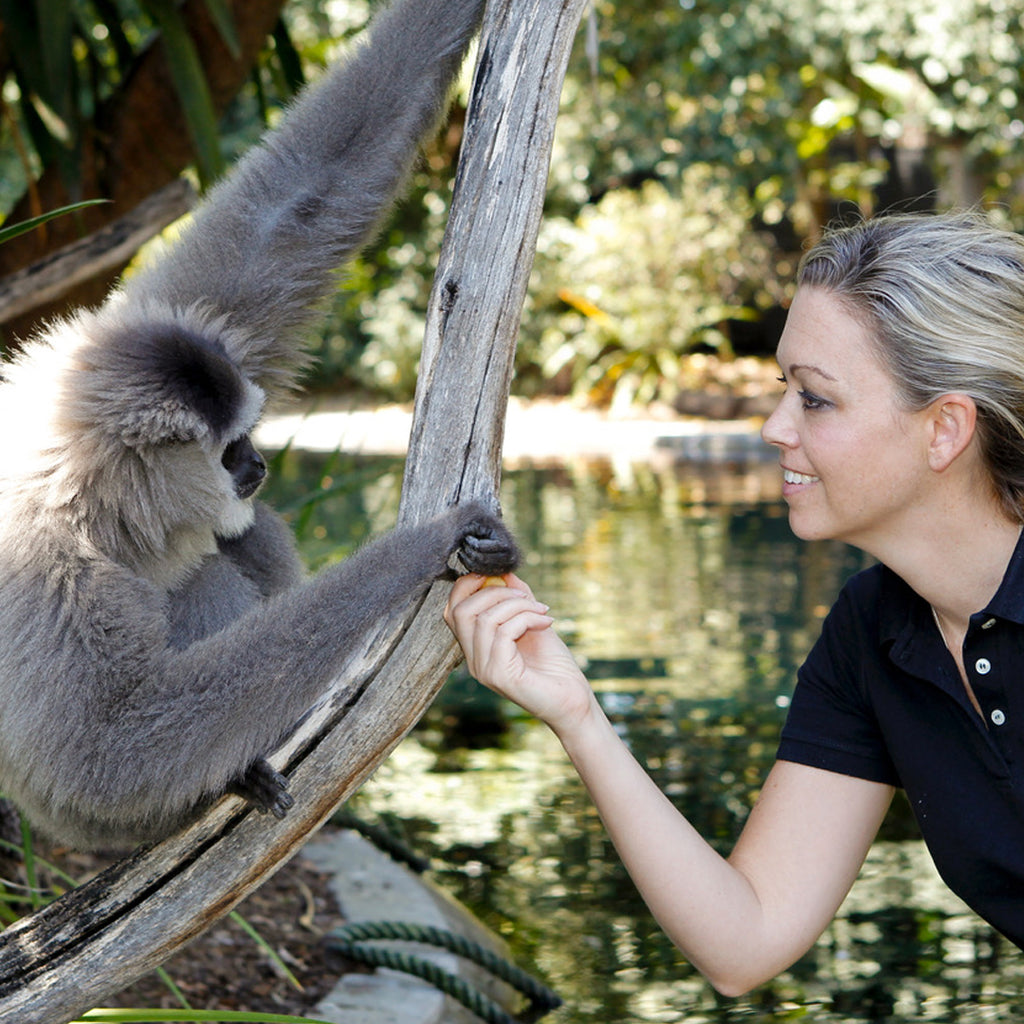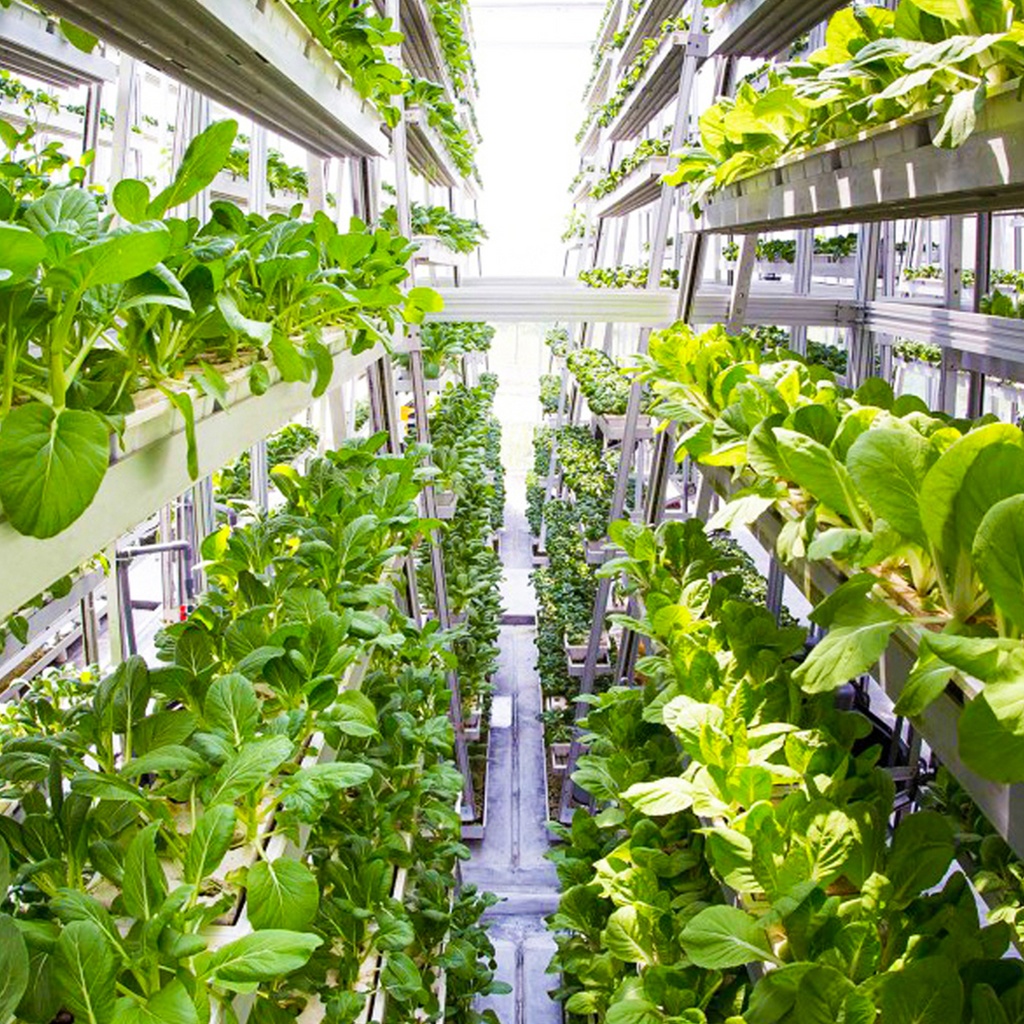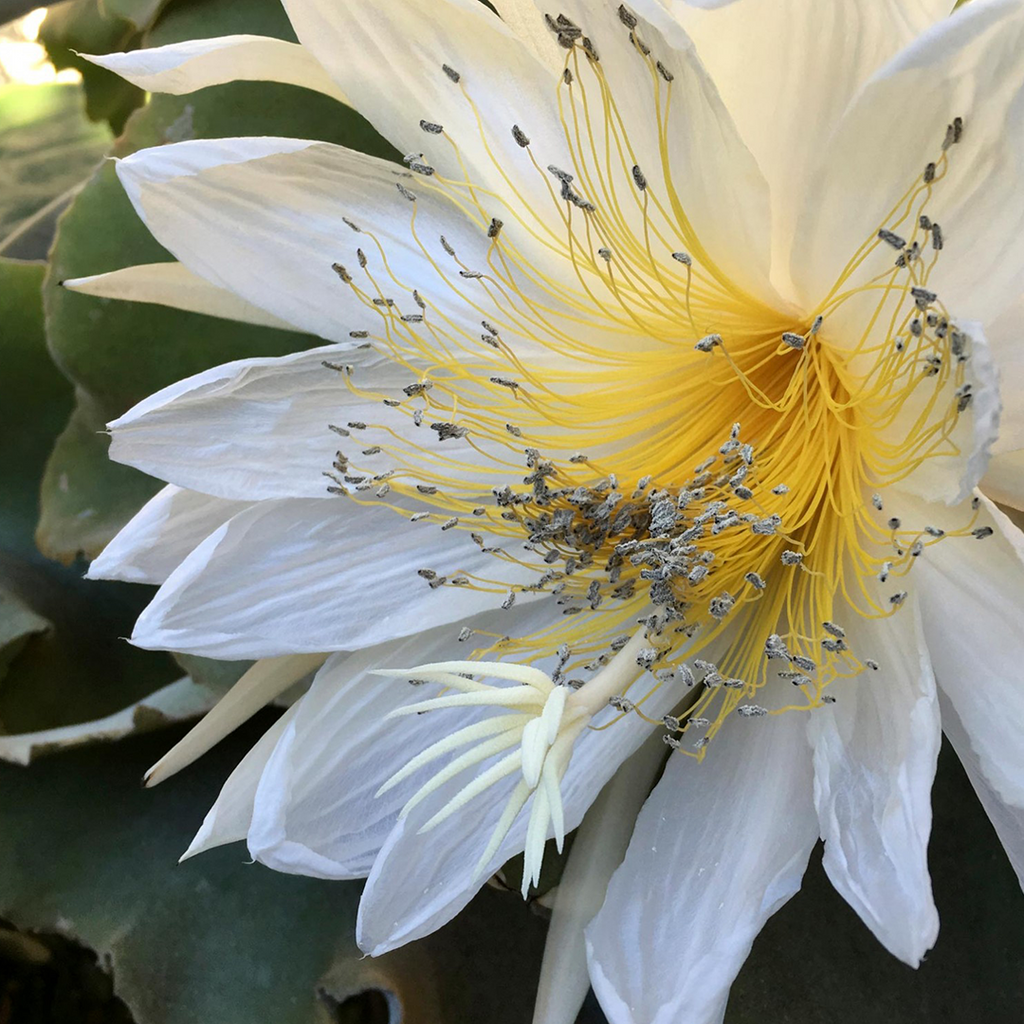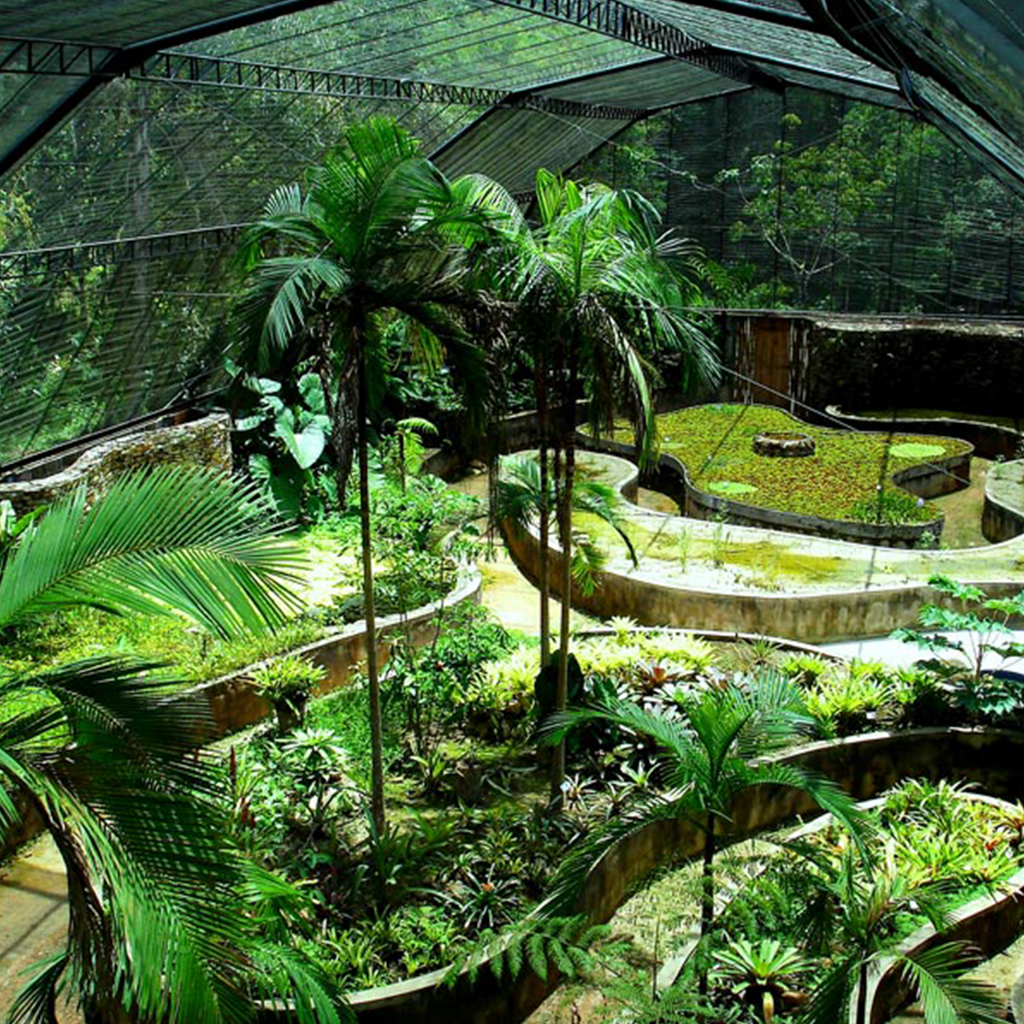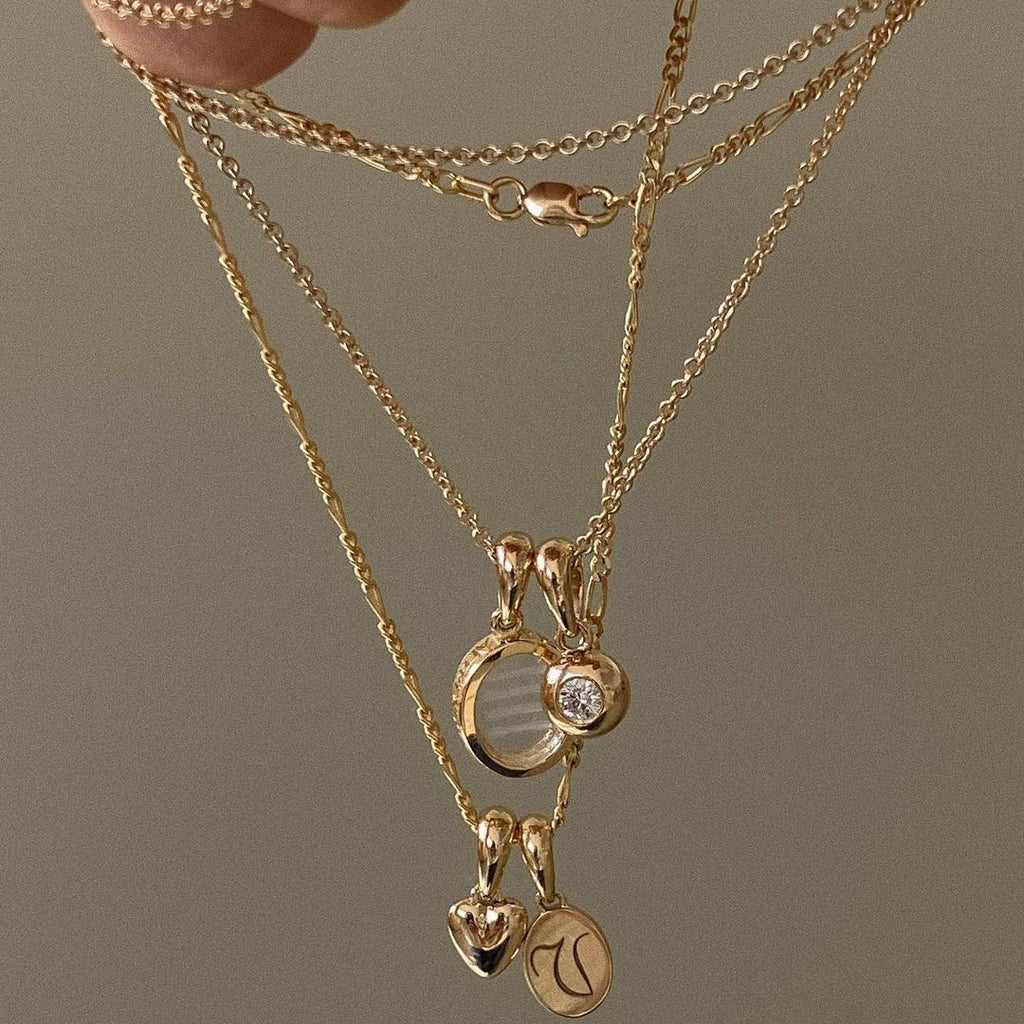Environmentalist and shark conservationist Liz Parkinson
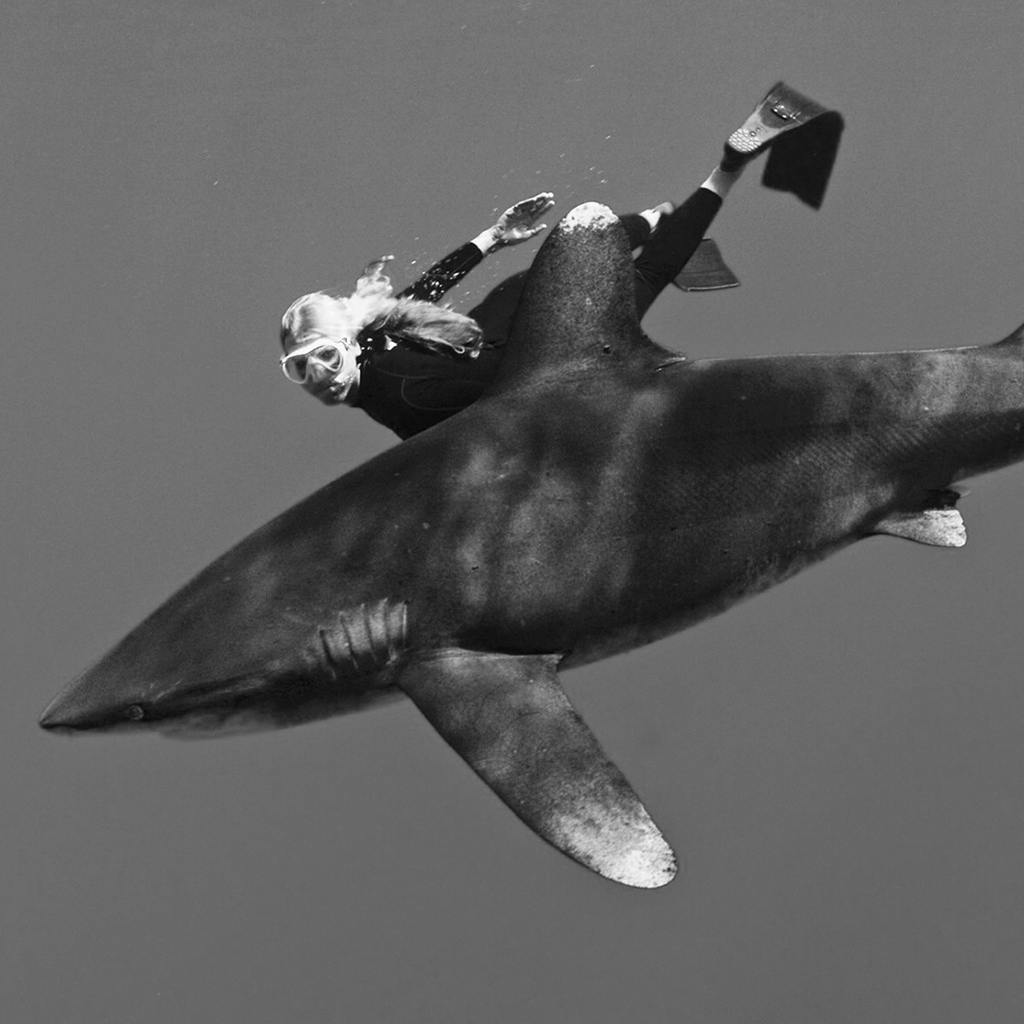
How was your love for sharks born?
"Sharks are so misunderstood. They are remarkable animals that instinctually keep our oceans healthy. An old shark tooth that hangs on my bedroom wall reminds me of that.
My Grandfather was a geologist and when he was a young man, he found a fossilized Megalodon Shark tooth in the mountains of Greenland. The tooth had been locked in some glacier ice for millions of years, and he had come across it on an exploratory dig. He used it as a paperweight in his office for years, and I remember him handing it to me to hold onto when I was very little, telling stories of how the remains of a sea creature reached the tops of mountains. That was my first encounter with a shark, maybe a slightly different one, but one that none the less left a lasting impression on me.
Growing up in South Africa with a childhood full of adventure and sports, I became a competitive swimmer at a very young age and was in the water everyday which I truly loved. Swimming became my life. Working up to an international level of competition I moved to the United States for University at the age of 18. Literally from the swimming pool to the ocean. Living full time in the Bahamas now, I do find it hard sometimes to believe that I live in one of the most remarkable island chains in the world. The turquoise waters that surround the 750 islands and keys that make up the Bahamas, are world famous for their beauty, shark/animal life and breathtaking clarity. This archipelago is definitely an extraordinary place, and whenever I travel, I am always glad that I get to return to my boat and the beautiful water it floats on.."

Are you never afraid when diving with sharks?
"Sharks are the most incredible animals. They have survived millions of years in one of the harshest environments on our planet. They are one of the apex predators that keep our oceans in balance. They certainly deserve our respect, and the fear that people have for them is one of the reasons I do what I do.
I get asked this question quite frequently and I have to say that I am not afraid of sharks but I do have the utmost respect for them. When you work closely with any animal be it a mammal, fish, bird or reptile you always have to be alert to the fact that things can change very quickly. Animal behavior, especially in some species, can be unpredictable. Respecting an animal’s space, stress levels and surrounding environment, all come into play when you work closely with them. Sharks are no different. However, what they do have is a long history of negative stereotype, and this I have found is far more dangerous then swimming with them. In general people are afraid of what they do not know and understand."

What is Project Aware?
"Project AWARE really is a remarkable organization with passionate people working together to help bring knowledge to the public and educate people on what they can do to help.
I am fortunate to work with Project AWARE in several capacities. Project AWARE (www.projectaware.com) is a non-profit organization that works with scuba divers from around the world to protect the ocean and the marine life in it. As a PADI SCUBA Diving Instructor, I teach several of their SCUBA Diving specialties, Shark Conservation, Turtle Awareness, Coral Nursery and Dive Against Debris. This gives me the opportunity to educate people and spread the knowledge that I have gained, with guests and friends coming out to the Bahamas, to my work place Stuart Cove’s Dive Bahamas. I am also the Manager of Project AWARE’s ‘Run for Sharks’ Team. Every year a group of amazing people get together and participate in the Chicago and New York City Marathons. It is a fantastic way to get involved with the non-profit. We get tremendous feedback from people all over the world, donating to individual runners and following their progress throughout the races. Some of our runners do not live by the ocean, but feel strongly enough about the cause to come back year after year."
Do you think our coral reefs and oceans are affected by global warming? If so have you seen the changes?
"Global Warming and Climate change are huge topics currently in our global community. The human hand has increased its destruction, and the pressures laid down by this are becoming more apparent everyday. I cannot speak for all ecosystems but I feel pretty confident that most environments have certainly felt the affect of our changing climate and sadly the results are having harmful effects.
There are many barrier reef systems that have experienced coral bleaching in certain parts of the world. In 1998 the Bahamas experienced this event. The ocean's water became too warm to support the coral reefs and roughly 60% of our shallow reef systems were destroyed. Over the past decade the ocean has remarkably made a come back. However, this takes a long time and some of the damage is irreversible.
I think because I dive everyday the change that is happening on a global level is hard to see, that being said it is when I travel to different places and view underwater environments that I am not used seeing everyday, that I do notice a change.
The most shocking evidence is in photographs and video. Nothing compares to what Jacque Cousteau saw 60 years ago underwater. Even watching films that he made in black and white with no high definition capabilities, shows what we have done and the permanent scar that we have left behind."
What do you think ordinary individuals can do to save the oceans?
"Our Human Footprint will always have an affect on the environment in which we live. The ocean is no exception. As we live on a planet that is covered predominantly with water, it is inevitable that the waste and pollution which we continuing to produce will land up in it. As life continues to get busier, faster and more stressful, we tend to forget that the very thing which, is supporting our lives, is getting sicker and is spirally further downwards. This being said, simple acts that are easily incorporated into your life, does help, even if you do not feel that you see the results. Cut out ‘one use’ plastics from your life e.g. Straws, take away drink cups, toothbrushes (Go Bamboo, www.brushwithbamboo.com). This is the easiest way to dramatically reduce your carbon footprint. Be mindful of basic household cleaning supplies, use ones that are more eco friendly, start carpooling, recycle waste produces, donate used clothing. This being said, don’t start with trying to change everything in your life at one time. Start with one change and get use to doing that.
My parents instilled the importance of nature and wild animals into my brother and I at a young age. Growing up in Africa it is hard to escape to constant awareness that our ecosystems and the wildlife that lives it are being further pressured year after year. They never hid us for the harsh and tragic reality that poachers leave in their wake and how the sad stereotyping of certain animals is having an irreversible affect on the environment.
Education is the key – be the change you want to see in the world!!!!"
What makes you happy?
"There are many answers to this question, but at the end of the day being able to do what I love gives me value and being able to share this with people from all over the world, is something that I feel most fortunate for. I get messages, comments and questions everyday asking me about sharks, why I dive with them and what makes me want to interact with them. Some ask me questions that I have never thought about, other share experiences with me that they have had with family and friends on holiday, diving or snorkeling.
I am a firm believer that it is not the amount of breathes you take, but rather the moments that take your breathe away in life, that make this one time ride we each have so remarkable."
Photo credits: Frazier Nivens, All images copyright Liz Parkinson, follow her on Instagram.


